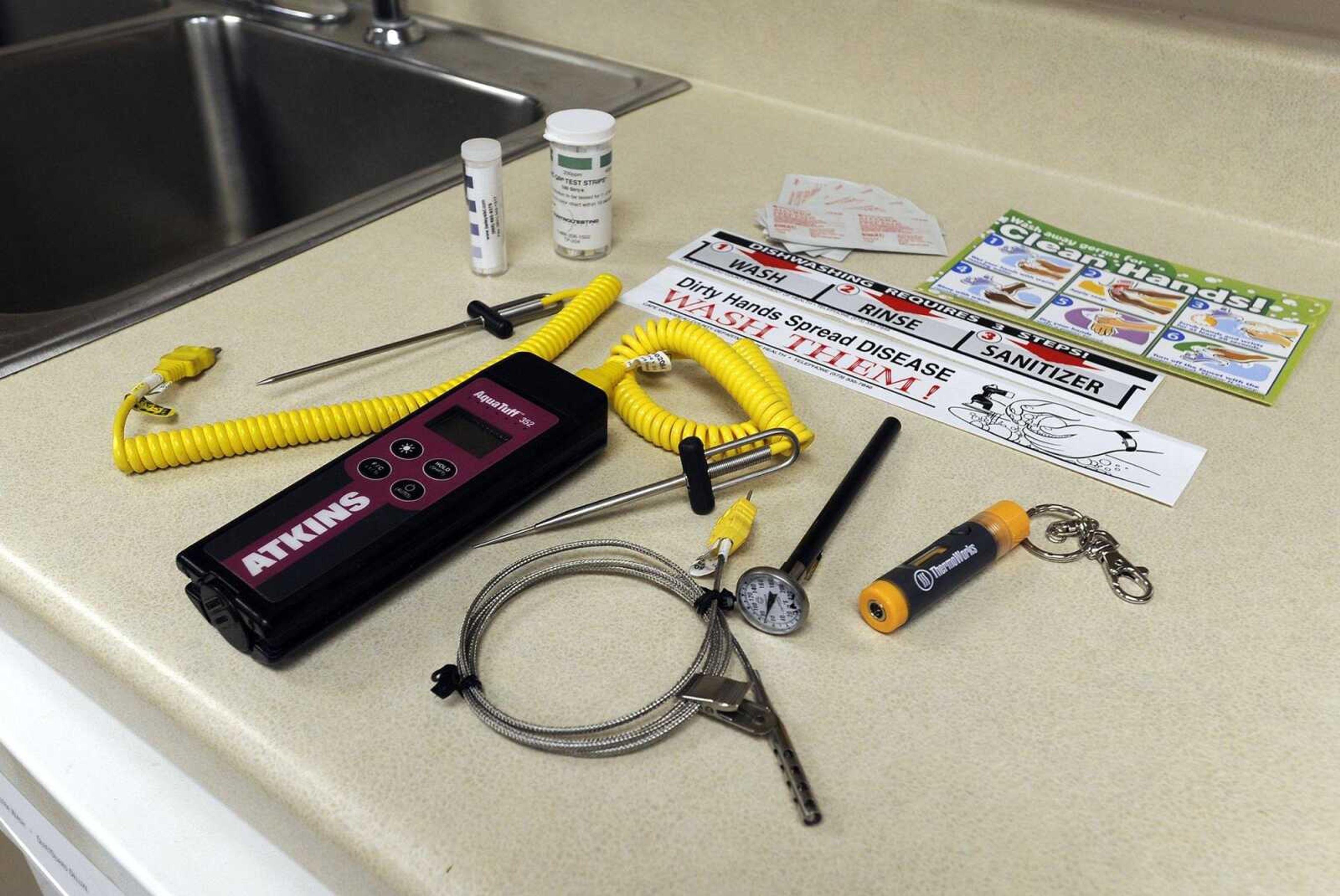Health inspectors 'keep an eye on' local restaurants
Restaurant owners may see unannounced health inspections as inconvenient, but the inspections can play a vital role in helping to keep patrons safe in Southeast Missouri. Cape Girardeau County health inspector Natalie Govreau said the county has its own food and beverage ordinance, and �we can be stricter� than the state�s food code...
Restaurant owners may see unannounced health inspections as inconvenient, but the inspections can play a vital role in helping to keep patrons safe in Southeast Missouri.
Cape Girardeau County health inspector Natalie Govreau said the county has its own food and beverage ordinance, and �we can be stricter� than the state�s food code.
The department focuses on risk factors, she said.
�Those are going to be, obviously, if the person in charge can demonstrate knowledge and perform duties correctly and safely,� Govreau said. �Personal hygiene is huge: properly washing their hands and no bare hand contact with ready-to-eat foods.�
Govreau described ready-to-eat foods as something a diner can physically pick up and put into his or her mouth, so obviously, she said, �wash your hands before you put gloves on.�
Other items Govreau looks for include proper cooking time and temperatures.
�Right now, going into the summertime, coolers are working extra hard outside,� she said. �So that goes with our food trucks, too. You gotta keep an eye on those.�
Govreau investigates whether food-contact surfaces are washed, rinsed and sanitized and also whether they have been sanitized properly.
She said if the sanitizing chemical is too weak, it won�t accomplish its task; if it�s too strong, it could potentially harm somebody through chemical poisoning.
Listed on the health department inspection form, Govreau explained, is a checklist that�s called �good retail practices� encompassing scenarios such as:
- Is your food properly labeled?
- Do you have wiping cloths lying all over your restaurant?
- Do you have hot and cold running water for your hand-washing sinks?
- Is your physical facility in good repair?
- Are there holes in your walls?
- Are ceilings falling down?
- Is there leaky plumbing?
�We do a lot. We look at a lot during our inspections,� Govreau said. �The bulk of our inspection is obviously us asking a lot of questions.�
Govreau said all routine inspections are surprise visits.
�We just hop in, tell them who we are, and we go right on to the kitchen,� she said.
Most of the time, restaurants are visited by a follow-up inspection, Govreau said, which is an inspection that offers a chance to correct unacceptable items found during a routine inspection.
One main thing that would result in immediate closure, according to Govreau, is a sewer backup of any kind.
Improper cold-holding temperatures involving a walk-in cooler not working would also result in closure.
�I do know a few times where people had to shut down because of their cold-hold units. We are right back there within a few hours,� Govreau said.
She said that not too long ago, a supervisor had to close a restaurant until everything was properly sanitized because of a sewer backup.
Govreau said if she is informed of any priority item violations, restaurants have to take immediate action. For core items, if they have five or more, a follow-up is administered, she explained. But if there were five or fewer, the next review would be a routine inspection.
�We are actually working on our mobile food units,� she said. �Right now, our mobile food units are only getting inspected once a season because most of them do close down during the winter time.�
Govreau said, �Myself and another health inspector were actually going to a Food and Drug Administration training on temporary food, which is food units. We�re hoping to get that program revamped here.�
Follow-ups are announced, she said, giving a restaurant an opportunity to correct things.
Some restaurants require spot checks, or what Govreau referred to as being on a �risk-control plan.�
�We will go in and the restaurant itself will come up with a risk-control plan,� she said. �They fill it out, they tailor it to them and we go over it with them.�
Once the health department approves the plan, surprise spot checks are then run, Govreau said.
It won�t be a �full routine inspection,� she said, but will include the necessary items requiring a review.
For example, if a restaurant�s kitchen is unacceptable, the health department does reserve the right to do a routine inspection at any time, Govreau said.
�We do get complaints a lot by phone, email or website, and every complaint we get, we do work,� she said. �And with those, we just show up. We don�t call them. We just walk into the kitchen and make them aware of the complaint.�
She said whatever the complaint, an inspector would return to the restaurant in question to check the required areas. Each instance though, is on a case-by-case basis.
�We try to have a very good working relationship with our restaurants,� Govreau said, �and here in the past couple of years we actually switched to the high, medium, low priority. Before we did that, we just inspected a restaurant once a year.�
Govreau said restaurants are divided by inspector, resulting in the same inspector overseeing each routine inspection.
�We currently have four full-time health inspectors here,� she said. �For Cape County, we actually do need more, but money is always an issue in the workplace.�
Food inspections rank at the top of the list of the department�s health inspections, Govreau said. But the agency also performs lodging and day-care inspections, and well testing.
jhartwig@semissourian.com
(573) 388-3632
Connect with the Southeast Missourian Newsroom:
For corrections to this story or other insights for the editor, click here. To submit a letter to the editor, click here. To learn about the Southeast Missourian’s AI Policy, click here.










